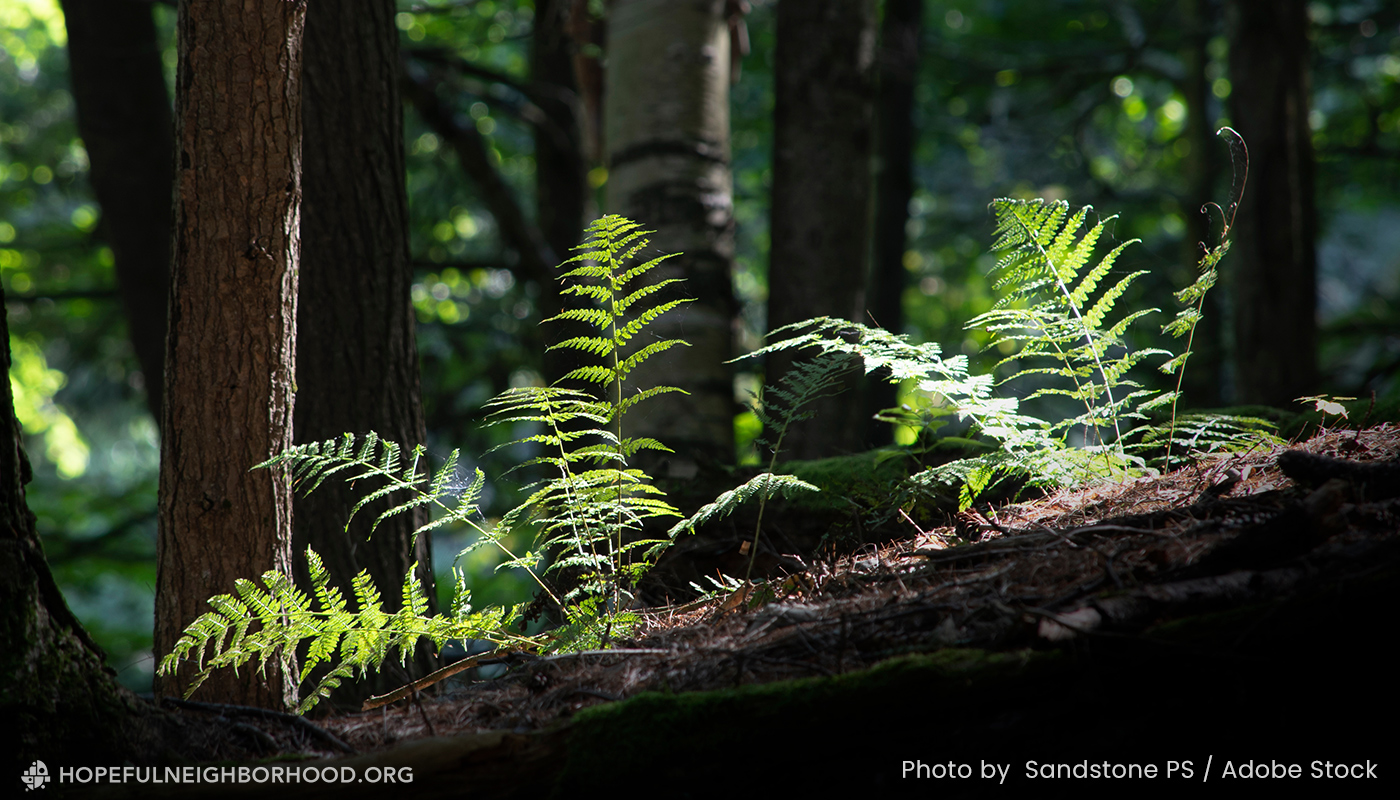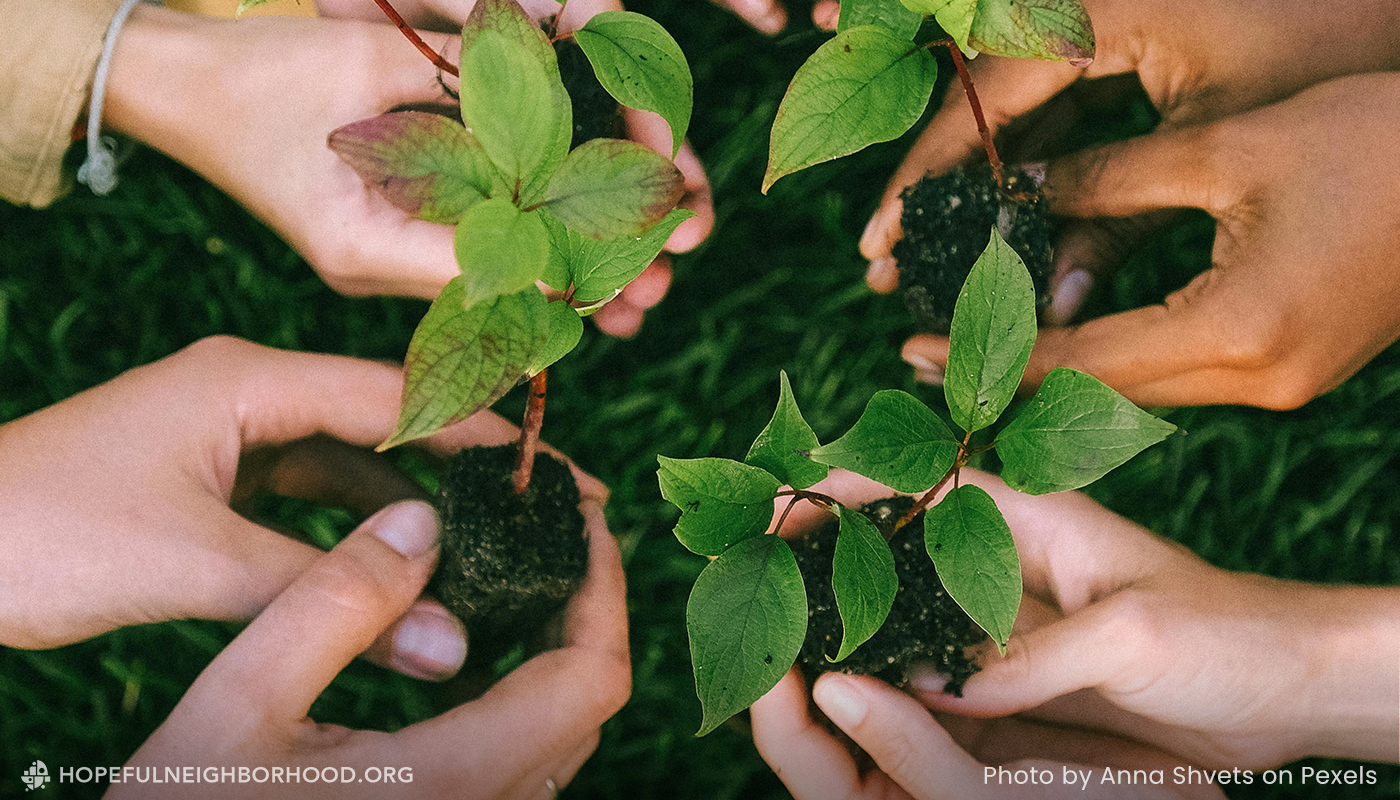Last year, I was talking with my dad about climate activism, and he said, “But I’m not an activist. I don’t go out in the streets and march or anything.” We shared a brief moment of silence, then changed the topic. I reflected on my father’s words and that silence for a long while afterwards, unable to move past the dead-endedness of it, and was surprised to discover a kernel of dismay.
The source of my upset was, and is, that the common understanding of activism (climate or otherwise) is so narrow, it often excludes people who don’t necessarily possess the inclination to protest or chain themselves to trees. (For the record, I applaud the people who embody these brave acts.)
Expanding Our Notions of Activism
To shake ourselves into a more spacious sentiment, let us begin by considering the words of longtime environmental activist Joanna Macy. She writes, “We’re using the term activist here to mean anyone who is active for a purpose bigger than personal gain.”
Widening the definition of activism as one’s intention to serve something greater than themselves feels like a good place to start, but what actions count? Here, let us weave in the wisdom of the brilliant author and theologian Howard Thurman. He writes, “Don’t ask what the world needs. Ask what makes you come alive, and go do it. Because what the world needs is people who have come alive.”
Whenever I read these words, I feel liberated, because instead of thinking about what I should do, I begin to think about what lights me up, and how I might contribute these aptitudes towards something bigger than myself.
Gifts, I believe, are those inherent capabilities within us that, when applied to service, not only nourish the community, but invoke a deepened sense of aliveness and wholeness within ourselves.
This reorientation of uplifting our gifts makes me want to be a part of the movement, instead of experiencing the burnout that usually results when I try to squeeze myself into a modality that doesn’t quite fit.
Weaving Our Collective Gifts
For years, I thought that I could change the world by myself: if I just worked hard enough and for enough hours doing all of the right things, then I could stop the wave of collapse we are already in the midst of. It took me a long time to break from this individualistic thinking, and to embrace collaboration as a means of making something beautiful that I couldn’t have made on my own.
Thich Nhat Hanh, a Buddhist monk and peace activist, once said that “the next Buddha will be a sangha” (the word sangha is traditionally used to describe a group of Buddhists practicing the dharma [or, teaching of Buddhism] together; it is an embodied community, a divine association). In this simple phrase, Nhat Hanh is suggesting that the next iteration of ultimate light and love will not be just one gifted individual, but a community of people bringing their unique, fully-alive selves to practice together.
There lies a tender presupposition in this wisdom, which is that everyone has a gift to contribute, and that it is our community’s job to help uncover and foster the gifts of our neighbors. Let me repeat: everyone has a gift to offer in shaping the Beloved Community. Everyone. Whether or not these gifts are visible or commodifiable, and whether or not you enjoy individual personalities is beside the point.
Most likely, the gifts will fall quietly beyond the realm of who is technologically savvy, or who has significant training or a degree. Instead, let us make room for more nuance, for expansion: who is a great storyteller in the community? Who bakes really good bread? Who possesses a memory like an elephant?
I think of my friend Vanessa, who is an exceptional extemporaneous speaker, or my friend John, who knows how to sit and be still with people who are suffering. I think of my fellow organizer Pam, who always has an eye out for how to make spaces more accessible.
You Are an Activist!
So, I ask you, then, dear reader (dear activist!): what is it that brings you joy? What do you love to do? What are your inherent proclivities? What do you wish you had more time for? These are the questions that people asked me, which helped me to unlock my own gifts. These are the kinds of questions you can ask your neighbors—those within your community with whom you share your life, and with whom lies a great possibility for change.
We wake up when we do what we love, what we were born to do. We also share, and are all deeply impacted by, a climate-changed world. The movement to heal and remember ourselves into better ways of being needs awakened people now more than ever. Let us widen the circle and cultivate a culture of activism in our own neighborhoods, one which seeks to uplift each person’s unique gifts for the common good.
Madeline Bugeau-Heartt is a guest writer for the Hopeful Neighborhood Project blog. She works for transformative spiritual leadership in a climate-changed world at The BTS Center (thebtscenter.org). Madeline also wears the hats of local organizer and theater maker in her home of Belfast, Maine.
This is post 2 of 3 focusing on our environment as part of our Hopeful Neighborhood. Read the first blog post in the series: Building a Resilient Neighborhood in the Midst of Climate Change.


0 Comments